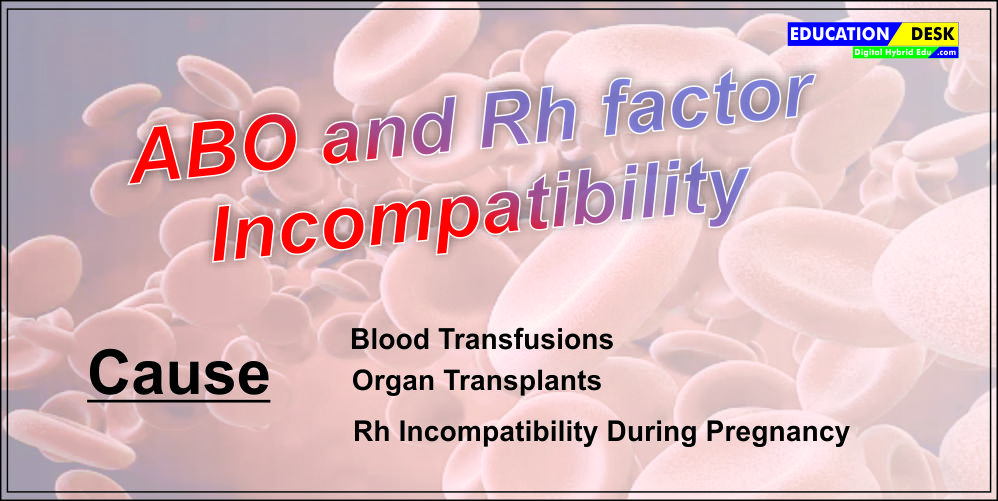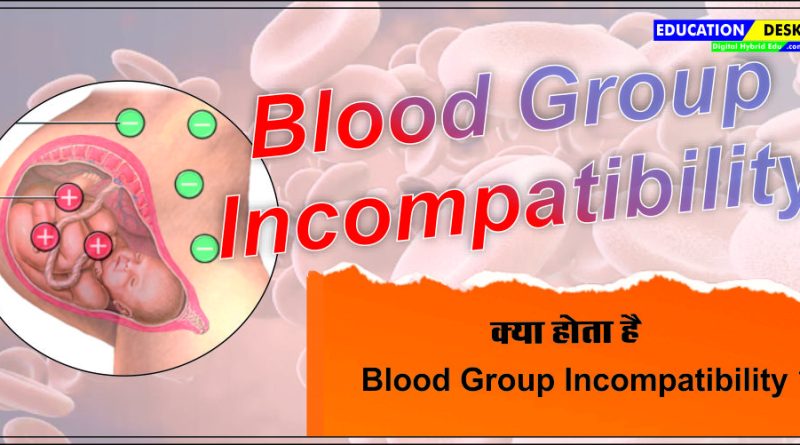Blood Group Incompatibility: Risks and Implications
Blood Group Incompatibility: Risks and Implications
Introduction
Blood group incompatibility refers to a condition where the blood of two individuals is incompatible due to differences in their blood types. This incompatibility can lead to adverse reactions when blood transfusions or organ transplants are performed.
In this article, we will explore the different blood groups, the causes of blood group incompatibility, its potential risks, and the measures taken to prevent and manage this condition.
Understanding Blood Groups
Blood groups are determined by the presence or absence of specific antigens on the surface of red blood cells. The two most important blood group systems are ABO and Rh. The ABO system categorizes blood into four main types: A, B, AB, and O.
The Rh system classifies blood as Rh-positive or Rh-negative. In addition to these systems, there are other less common blood group systems that also play a role in compatibility.
Types of Blood Group Incompatibility
ABO Incompatibility
ABO incompatibility occurs when a person receives blood from a donor with a different ABO blood type. For example, a person with blood type A receiving type B blood would result in an incompatible transfusion.
ABO incompatibility can lead to hemolytic reactions, where the recipient’s immune system attacks and destroys the transfused red blood cells.
Rh Incompatibility
Rh incompatibility arises when an Rh-negative individual receives blood from an Rh-positive donor. This can occur during a transfusion or during pregnancy when an Rh-negative mother carries an Rh-positive fetus. Rh incompatibility can cause serious complications, including the production of antibodies that may harm future pregnancies.
Causes of Blood Group Incompatibility
Blood Transfusions
Blood transfusions are a common cause of blood group incompatibility. When blood is transfused, it is essential to match the donor’s blood type with the recipient’s blood type to prevent adverse reactions. A failure to properly match blood types can result in hemolytic reactions and other complications.
Organ Transplants
Organ transplants involve the transfer of an organ from one person to another. Incompatibility between the blood types of the organ donor and recipient can lead to organ rejection. To minimize the risk of rejection, matching blood types between the donor and recipient is crucial.

Also Read this Article
Neonatal Jaundice why occurs ?
About dengue, Symptoms, test and Treatment
Risks and Complications
Hemolytic Reactions
Hemolytic reactions occur when the recipient’s immune system identifies the transfused red blood cells as foreign and launches an attack. This immune response can cause the destruction of red blood cells, leading to anemia, jaundice, kidney damage, and potentially life-threatening complications.
Transfusion-Related Acute Lung Injury (TRALI)
TRALI is a rare but severe complication of blood transfusions. It is characterized by the sudden onset of respiratory distress and can be life-threatening. TRALI is believed to be caused by antibodies in the donor’s blood that react with the recipient’s lung tissue, leading to inflammation and fluid accumulation.
Delayed Hemolytic Transfusion Reaction (DHTR)
DHTR is a delayed immune response that occurs days to weeks after a blood transfusion. It is characterized by the destruction of transfused red blood cells by the recipient’s immune system. DHTR can result in anemia, kidney damage, and other complications.
Prevention and Management
Blood Typing and Crossmatching
Before any blood transfusion or organ transplant, blood typing and crossmatching are performed to ensure compatibility between the donor and recipient. Blood typing determines the ABO and Rh blood groups, while crossmatching tests for potential reactions between donor and recipient blood samples.
Rh Immunoglobulin Administration
To prevent Rh incompatibility in pregnancies where an Rh-negative mother carries an Rh-positive fetus, Rh immunoglobulin is administered. This medication prevents the mother’s immune system from producing antibodies against the Rh antigen, reducing the risk of complications in future pregnancies.
Genetic Counseling
In cases where blood group incompatibility poses a significant risk, genetic counseling can provide valuable guidance. Genetic counselors can assess the likelihood of blood group incompatibility in future pregnancies and offer recommendations to minimize potential complications.
Conclusion
Blood group incompatibility can have serious consequences during blood transfusions and organ transplants. Understanding the different blood groups, causes of incompatibility, and associated risks is crucial for healthcare professionals and individuals involved in such procedures. By implementing preventive measures, performing thorough blood typing and crossmatching, and providing appropriate medical interventions, the risks associated with blood group incompatibility can be minimized.
FAQs (Frequently Asked Questions)
- Can blood group incompatibility be dangerous? Blood group incompatibility can lead to severe complications, including hemolytic reactions and organ rejection, which can be life-threatening.
- What is the most common blood type? Blood type O is the most common blood type globally.
- Can blood group incompatibility affect pregnancy? Yes, Rh incompatibility between the mother and fetus can lead to complications in pregnancy, such as hemolytic disease of the newborn.
- How is blood typing performed? Blood typing involves testing a person’s blood sample for the presence of specific antigens to determine their blood group.
- Is blood group incompatibility preventable? With proper blood typing, crossmatching, and preventive interventions like Rh immunoglobulin administration, the risks of blood group incompatibility can be minimized.
This is only of Educational Purpose





Pingback: Mechanism of Bilirubin production and type of Bilirubin » Digital Hybrid Education